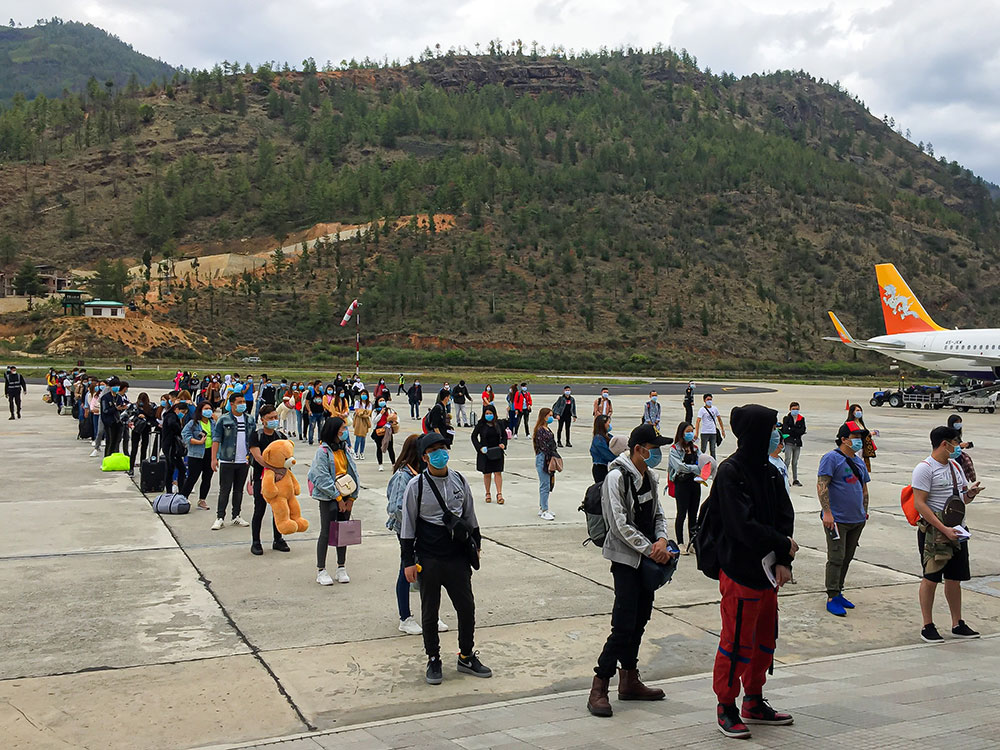Phub Dem
Iron Female Ox Year-Paro and Haa: Paro came under the nation’s scrutiny with many people blaming it to be the source of Covid-19 that caused the second lockdown.
When the Female Ox Year began, many people questioned the dzongkhag taskforce and the government why a school bus driver in Paro was not quarantined after transporting passengers from the airport to the quarantine centres.
The quarantine lapse, many claimed, led to a full-blown community case in Paro and Thimphu.
The dzongkhag, which is known for the lush green fields, had also faced agricultural-related challenges for the whole year.
Paro, the rice bowl of Bhutan, was hit the hardest by continuous rainfall during the peak harvest season. The rain affected about 793 acres of paddy fields, damaging an estimated 1,945 metric tonnes of rice production.
About 907 households from 10 gewogs in the dzongkhag known for the vast flatland and rice production was affected.
From losing paddies to natural disasters and potatoes to wild boars, farmers of the two dzongkhags also faced export issues to sell cabbages, acute shortage of carrot and cardamon market.
Poultry farmers of Paro and Haa also lost more than 5,000 birds to feed contamination.
Farmers in Haa and Paro were disappointed by the price of potatoes, cabbages and carrots and the buyback procedures.
Although Paro has fertile land, some areas remain fallow because of water shortages. Villages like Due-Zhi and Bara in Dopshari gewog, Lholing in Shaba and Tenchekha in Dogar gewog are impacted by water shortage.
An irrigation scheme worth Nu 53 million to benefit two chiwogs failed right after its completion. The project expected to benefit 200 households lies defunct for more than five years.
Mounting waste and illegal dumping of waste were the heart of discussion in Paro last year. The valley known for serenity and gateway to international visitors was and still is dealing with the waste problem.
In Haa, the year saw the plight of remote gewogs without reliable health centres and support staff.
The dzongkhag came to the limelight when a sweeper taught students because of shortage of teachers in Sombaykha.
The remote gewogs also reported poor quality of basic infrastructures such as roads, bridges and health centres.
However, Haa dzongkhag tshogdu stopped mineral exploration in Dorithasa to save the village and red panda from degradation, which came as collective support to protect the natural environment and its ecosystem.
Meanwhile, the Desuung National Service Water project blessed the remote pockets of dzongkhags facing acute water shortages.
The project solved the water woes of Naja in Paro and Tshaphel in Haa.
Paro also elected three women gups last year. Out of 276 candidates contesting for the local government (LG) posts in Haa and Paro, 51 were women candidates.


